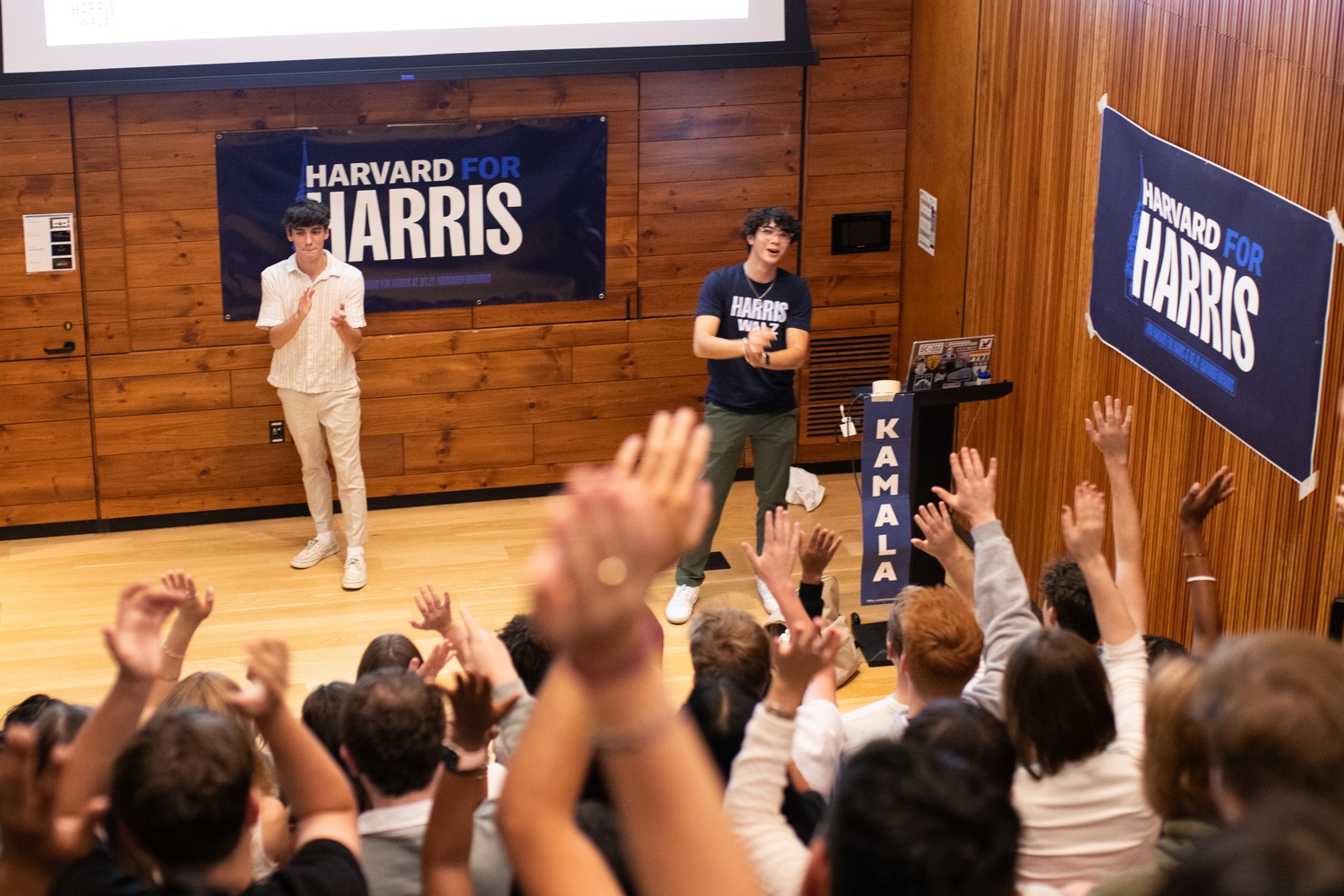
News
Harvard Grad Union Agrees To Bargain Without Ground Rules

News
Harvard Chabad Petitions to Change City Zoning Laws

News
Kestenbaum Files Opposition to Harvard’s Request for Documents

News
Harvard Agrees to a 1-Year $6 Million PILOT Agreement With the City of Cambridge

News
HUA Election Will Feature No Referenda or Survey Questions
I’m a Political Organizer. Here’s How Harvard Can Get Out the Vote.
As I write this, I am frantically switching between two brightly lit windows on my computer.
One side contains the op-ed you are currently reading. On the other, I am frantically responding to the questions of more than one hundred phone-bankers on a Zoom call. Why have I found myself in this predicament, you ask?
It’s because I never want to see Donald Trump as our president again.
Countless issues impacting Harvard students, and our generation at large, are on the ballot tomorrow: Immigration, education, democracy, climate change. As The Crimson Editorial Board eloquently argued yesterday, another four years of Trump would have unfathomable consequences for so many young Americans.
Nevertheless, it’s all too easy for us young voters to feel like we have no control over electoral outcomes. This feeling of helplessness is why I turned to political organizing my sophomore year of high school and haven’t looked back. But if four years doing this work have taught me anything, it’s that anyone can make a real difference this Election Day — all it takes is giving a few friends and family a call.
I’ve testified against climate rollbacks at the New York City Council, lobbied in Albany for renewable energy, and run volunteer programs for local candidates during primary season. Whenever I’ve felt particularly anxious about an upcoming vote, I’ve been comforted by my connections to organizing networks that have allowed me to influence change within my locality.
I recognize that my advocacy is a privilege. Not everyone has the time or access to dedicate themselves to something as intensive as political organizing. Luckily for all of us, this doesn’t preclude us from meaningfully influencing the outcome of Tuesday’s election or in elections to come.
In recent weeks, we Harvard students have found our email inboxes inundated with bipartisan reminders to vote from administrators and student organizations. While such reminders are important, they are bland and impersonal, and do not go far enough to mobilize our campus.
That mobilization must start with each of us, beginning with “vote tripling” — a relational organizing tool. Here’s how it works.
Converse with fellow voters, especially those in your immediate orbit: Family, friends, and acquaintances. Encourage them to discuss their support, or apathy, for the people or measures on the ballot. Get people talking about the candidates, issues, or outcomes that matter most to them.
Relational organizing is simple but highly effective. It’s a tactic supported by research — that’s why when volunteering with the Sunrise Movement’s national electoral team this fall, my fellow organizers and I were taught to always encourage swing state residents to “vote triple” themselves.
Vote tripling works — I’ve seen it in action. Just last week, during a midnight run-in, my blockmate and I spoke about the upcoming election and my organizing work around it. My blockmate mentioned that she was returning home to Georgia on Tuesday — a key battleground state — to vote. While home, beyond simply casting her vote, she also plans on speaking with her family and acquaintances to encourage them to get out the vote.
As Harvard students, we’re often considered to be leaders in our communities — it’s part of why we ended up on this campus in the first place. Whenever we speak, whenever we encourage others to vote, our message goes a long way. Indeed, as siblings, children, and friends, our opinions invariably have sway in the decision-making process of the people we are most interpersonally connected with.
So, if you haven’t already, talk to your friends and family about their voting plans today, and tell them to talk to others about the same. A simple, friendly reminder can go a long way.
This election is not out of your hands — in fact, it’s in each of ours. You are more persuasive than you think.
Jasmine N. Wynn ’27, a Crimson Editorial editor, is a History concentrator in Winthrop House.
Want to keep up with breaking news? Subscribe to our email newsletter.

